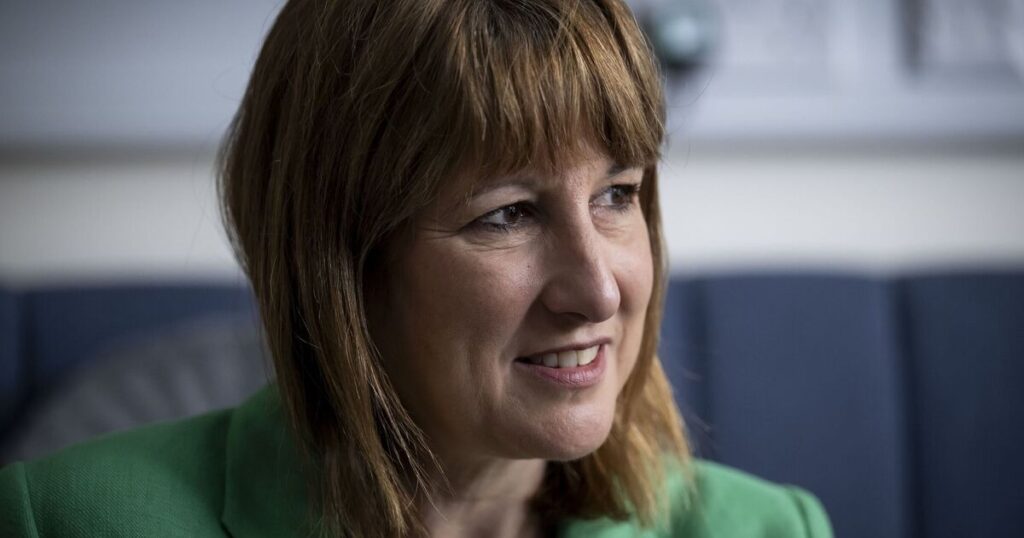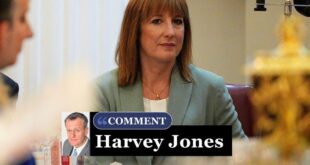
Rachel Reeves has been warned that tax rises could choke off economic growth as pressure mounts ahead of the Autumn Budget.
In a stark message, the head of the Government’s official spending watchdog cautioned that Britain was already “very exposed to shocks”.
And he suggested the Chancellor has left herself little room to manoeuvre without resorting to punishing tax rises or deep spending cuts.
Richard Hughes, chairman of the Office for Budget Responsibility (OBR), said: “Higher and higher levels of taxes are also not good for growth.”
His comments will fuel fears that Reeves may be planning a fresh tax grab in the coming months as she scrambles to plug a black hole of up to £20billion in the public finances.
The Chancellor had just under £10bn of fiscal “headroom” when she delivered Labour’s plans earlier this year. But a string of expensive policy U-turns, including reinstating the winter fuel payment for all pensioners and ditching tougher benefit rules, has eaten into that buffer.
Worse still, the OBR’s own forecasts are becoming gloomier by the month – meaning even tougher decisions lie ahead.
Giving evidence to MPs on the Treasury Select Committee, Hughes said: “We have already raised taxes quite a bit in this country. The tax burden is getting close to an all-time high… the state is already taking up a large share of public resources.”
He warned that pension funds – once a reliable buyer of UK debt – were stepping back, forcing the country to rely more on overseas investors, who may demand higher returns.
“That can have implications for the cost of debt and ultimately put quite significant pressures on the UK,” he said.
“There are reasons to worry,” he added bluntly.
The remarks came days after Hughes warned that Britain “cannot afford the array of promises it has made to the public”.
He denied Labour claims that the OBR was setting economic policy, and pointed instead to Reeves’s choice to adopt strict fiscal rules with “very little” room for manoeuvre.
Asked by Labour MP Jeevun Sandher whether more spending on research and development could spark growth, Hughes replied: “If higher research and development is being funded by a higher tax burden, there are some choices and trade-offs that need to be paid for.”
The intervention follows criticism from Labour’s own Red Wall MPs who have taken aim at the OBR, saying the Chancellor should not base tax decisions on “five-year predictions that are likely to be wrong”.
But Hughes insisted: “Chancellors can make a point about how much headroom they want against their fiscal rules. Recently they have left themselves very little.”
His warnings were echoed by Helen Miller, new director of the Institute for Fiscal Studies, who said Labour had “ignored the massive set of risks that were coming down the road”.
She said: “I don’t think the OBR is the problem,” and blamed Reeves’s own policy decisions. “That was the chancellor choosing her fiscal rules, choosing to give herself no wiggle room, despite the fact that we know that forecasts move around.”
And in a direct rebuke to any attempt to rewrite the rules, Miller added: “I don’t think changing the fiscal rules radically in the budget is the way to go.”
Amid the growing economic storm, Reeves used her speech at Mansion House last night to turn fire on the UK’s powerful regulators – blaming them for stifling enterprise.
She said: “Regulators must take up the call I make this evening not to bend to the temptation of excessive caution but to boldly regulate for growth in the service of prosperity across our country.”
In a swipe at Whitehall, she accused them of being a “boot on the neck of businesses” and said it was “clear” the Government “must do more” to reduce red tape.
 Latest World Breaking News Online News Portal
Latest World Breaking News Online News Portal






